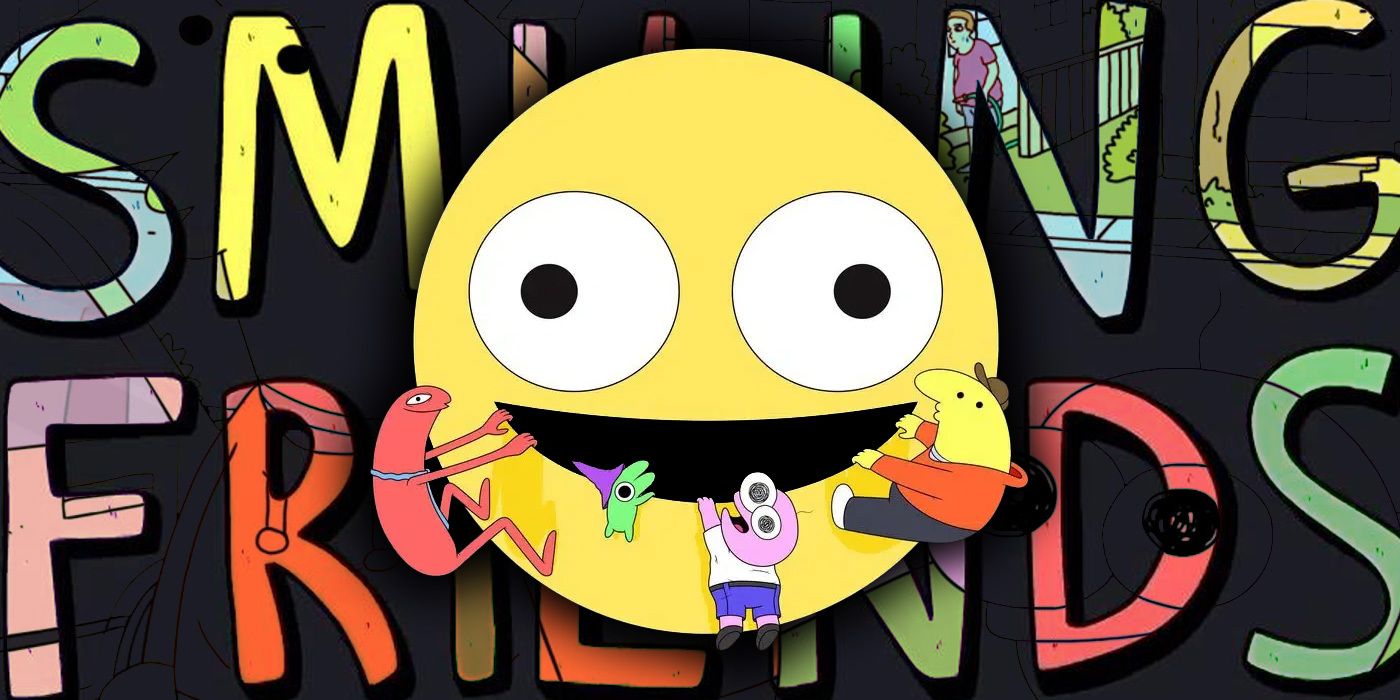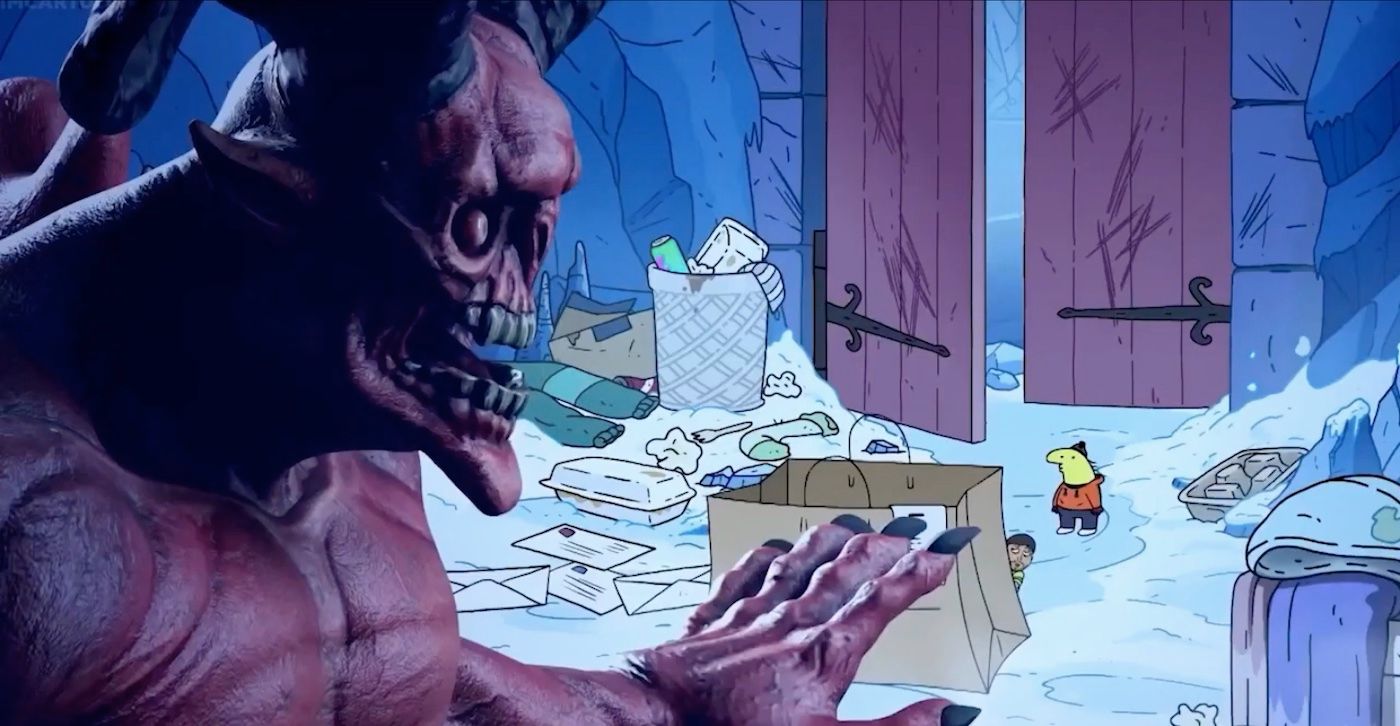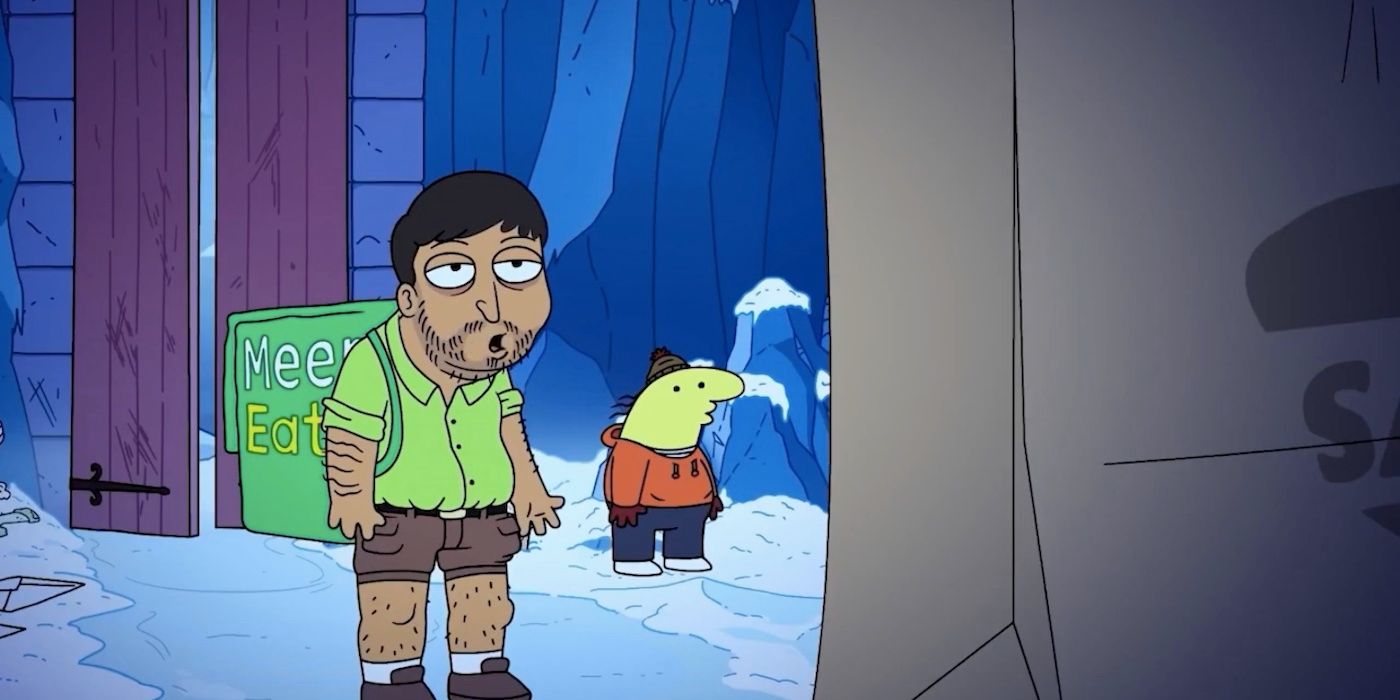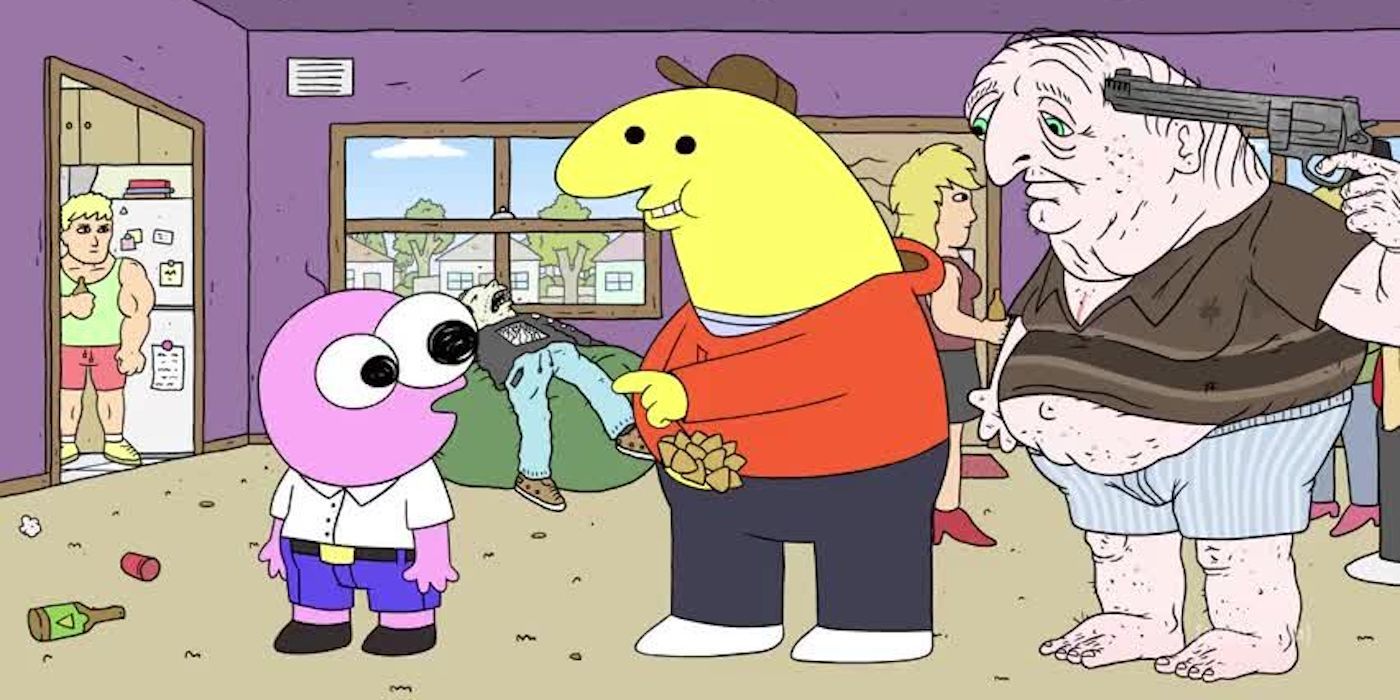Animation allows creators to explore their creativity with virtually no restrictions. With animation, stories can be told in ways that are impossible with traditional mediums. Any place can be explored, any character design is possible, and actions and emotions can be exaggerated in unique ways. Animated shows aimed at adults typically take full advantage of the limitless nature of the medium. Adult Swim’s animated comedy, Smiling Friends, is no different. Smiling Friends features a variety of bizarre “critters” and exotic locales like the enchanted forest and Hell. And yet, the Smiling Friends world seems incredibly ordinary: Bland, aimless conversations happen. There are realistically awkward interactions between characters, and time is lost on monotonous arguments. Smiling Friends continuously throws these plain moments at the audience, and unless the viewer is paying attention, they’re likely to not even notice how many instances there are. But they’re certainly laughing at them. After all, these mundane moments define the humor of Smiling Friends more than anything else.
Some of the funniest moments of Smiling Friends are reflections of the boring daily lives of the average person. Perhaps the most noticeable example of “mundane humor” comes in the show’s season finale, “Charlie Dies and Doesn’t Come Back”. In the episode, Charlie is sent to Hell and has an encounter with Satan which is interrupted by a knockoff Uber Eats delivery. Satan and the delivery guy exchange a meaningless conversation about the app having issues, showing the wrong address. They have to pause the whole interaction so a picture of the food can be taken, and a needlessly long and annoying “have a good night” conversation-ender takes place. Then to end the scene, Satan opens the bag to find his straw is missing and begins angrily muttering to himself.
This bit takes up nearly a full minute of the 11-minute cartoon. The scene is long, awkward, relatable, and extremely funny. But what makes this scene work isn’t the familiar blandness alone, it’s the juxtaposition of the mundane against the bizarre. The scene subverts the audience’s expectations by placing something we are accustomed to in a setting we wouldn’t expect to see it. In this case, it’s the combination of Uber Eats frustrations and Hell.
Starting off, the audience would not expect Uber Eats to exist in Hell, so despite it being a very normal thing in our world, the simple fact that it exists in this scenario is humorous. And when thinking of Satan, someone would reasonably expect him to act violently and with malice, especially when dealing with a dull and annoying situation. But in Smiling Friends, the ruler of Hell behaves in the exact same boring way as an ordinary person. He’s remarkably calm, understanding, and goes through the same monotonous motions that everyone watching the show has gone through before.
Smiling Friends uses this same formula in scenes throughout the show. Even in the pilot, “Desmond’s Big Day Out” there are examples to be seen. In this episode, Pim and Charlie are tasked with cheering up a dangerously suicidal man named Desmond (who holds a gun to his temple the whole time). The three spend the day together and do all sorts of fun things, but by the end of the day, Desmond still hasn’t smiled. Pim is physically and mentally broken by his failure and can’t handle the fact that his boundless optimism didn’t cure Desmond’s depressed cynicism. With Desmond about to commit suicide and Pim paralyzed, Charlie has to break up the chaos and get the group back to business.
He informs Desmond that some forms need to be filled out before he can kill himself, and Desmond politely agrees to go back to the office with him. This exchange is the note the scene ends on, and it’s the perfect punctuation. Pim’s mental breakdown is completely ignored, and Desmond’s suicide plans are put on hold solely because some tedious paperwork needs to be filled out. Realistically, the audience would expect a suicidal nihilist holding a revolver to his head to not care about some pointless paperwork. Just like in the Uber Eats scene, expectations are subverted, and absurdity is juxtaposed against the boring. This ultimately crafts a funnier and more memorable scene.
But this can all be taken a bit further. Even if the subversion of expectations within specific scenes were to be ignored, Smiling Friends’ mundane humor still works. That’s because the existence of dullness is a form of comedic subversion by itself. Many animated adult comedies lean into eccentric humor filled with absurd gags and unrealistic scenarios. This makes a lot of sense. When the sky is the limit, as it is in animation, why not use that freedom to create funny? But when this singular comedy style becomes the dominant, or sole source of humor in a show, all the jokes become less impactful. Shocking and outlandish situations are far less funny the more they appear, and when dozens of shows have used the same exaggerated comedy style, the entire genre starts to feel stagnant. But the comedy of Smiling Friends feels fresh, and that’s ironically because it embraces the boring.
The inclusion of these moments gives Smiling Friends a more interesting identity and provides some of the most memorable bits in the series. With the introduction of mundane humor, the viewer is ironically kept more engaged because it’s impossible to know when Uber Eats is going to derail the plot, or when suicide will be delayed because some paperwork needs to be filled out first. All the jokes in the show benefit from this unpredictability. When Smiling Friends does employ the trademark wacky humor used by other animated adult comedies like Rick and Morty, it feels funnier because it’s surrounded by normalcy in the other scenes. Episodes flip between mundane and over-the-top quickly, and despite the contrast between them, nothing feels disjointed when watching Smiling Friends. The show’s co-creators, Michael Cusack, and Zach Hadel were able to craft a world that is both hilariously plain and entertainingly over the top. The juxtaposition of these styles, and the genre-defying subversion of expectations, is how Smiling Friends creates humor out of monotony.




